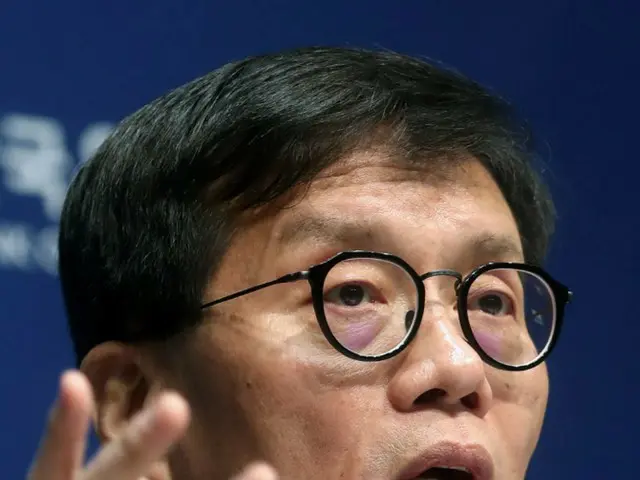Considering the history of interest rates, it is unusual for the Bank of Japan to cut interest rates again after last month.
The Bank of Korea Governor Lee Chang-yong speaks at a press conference on monetary policy direction held at the Bank of Korea (Photo: Joint Press Group)
At the meeting, the Monetary and Monetary Affairs Committee decided to lower the base interest rate by 0.25% to 3%. Since the beginning of the year, the considerations for determining the direction of monetary policy have changed from "price to exchange rate, household debt to
Recently, South Korea's economic growth rate has been stagnant. The gross domestic product (GDP) for the second quarter of this year recorded a negative growth of 0.2% compared to the previous quarter.
In the third quarter, growth was only 0.1%, well below the forecast (0.5%). In particular, the sluggish growth rate in the third quarter was due to structural reasons such as intensifying competition with low-cost semiconductors produced in China.
This is being analyzed as a factor behind the intensification of competition in the semiconductor industry, which is a major export item. Furthermore, the tax cuts, high tariffs, and immigration deportation policies of former US President Donald Trump have become a reality.
Concerns are growing over the economic slowdown due to a shrinking export market and rising import prices. In response, the Bank of Korea has revised down its forecast for next year's economic growth rate from 2.1% to 1.9%.
It forecasts growth of 1.8% in 2026, and expects the negative impact of U.S. policy changes to become more pronounced from the second half of next year onwards.
Bank of Korea Governor Lee Chang-yong responded to a question about whether the interest rate cut was a preemptive measure.
He added that "we are in the process of normalizing the current policy interest rate," but added, "We have decided to cut the rate a little faster as downward pressure on the economy has become greater than expected."
The study did not take into account household debt, which has been a drag on the decision to lower interest rates since July. This is a level that can be controlled through lending restrictions by financial authorities and government policies to expand real estate supply.
However, the exchange rate is being pointed out as a new risk factor for financial stability. This is because only the US economy is growing and the dollar is continuing to rise due to the reelection of President-elect Trump.
In response, Governor Lee explained that "it is an effective means of controlling fluctuations in exchange rates."
2024/11/29 08:52 KST
Copyrights(C) Edaily wowkorea.jp 107

